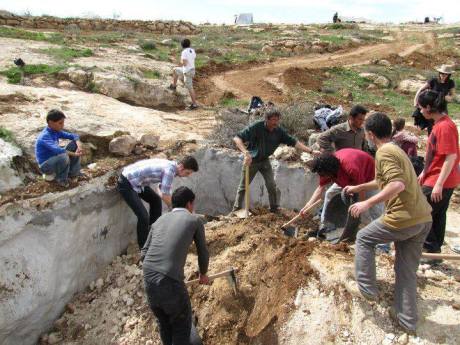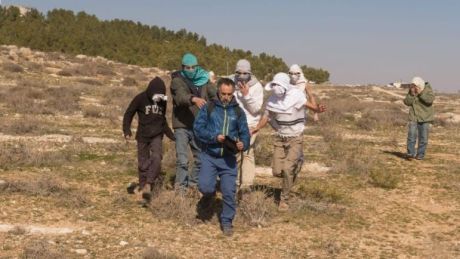Co-existence
April 19, 2017
While researching various “peaceful coexistence” efforts in Palestine-Israel, I found many that put the “cart before the horse.” Such groups rely on the premise that peace can be achieved if only each side gets to know each other. Despite good intentions, this is quite naiive. When each child leaves the safety of summer camp, differences in ethnicity and citizenship ultimately prevent democratic coexistence. In other words: the challenge is structural, not mental. This week’s reading, “A United, Democratic State in Palestine-Israel,” (and Azoulay and Ophir’s One State Condition) speaks to this challenge. Informed by historical examples, all one-state solutions mentioned are built on the same premises: reconciliation entails mutual recognition and separation would “require each side to give up more than it is able”. Specifically, the Right of Return, Law of Return, and settlements must all be deemed legitimate. Today, however, Israeli’s far right government seeks to ignore mutual recognition and deny human rights. Permanent occupation, Arab Israeli disenfranchisement, and internationally-condemned settlements continue to perpetuate one-state with Jewish control. Thus, coexistence means political action and regime change. But with slow success within the political system, some Israelis choose the route of direct action and civil disobedience to establish their own facts on the ground.

Ta’ayush in Arabic means “Living Together” or “Coexistence.” It is also the name of an Israeli-Palestinian solidarity/activist group. Formed in 2000, the group’s mission is to “end the Israeli occupation and to achieve full civil equality through daily non-violent direct-action” (Ta’ayush Website). Non-violent is the operative word and their resistance rejects both violent Israeli occupation and violent Palestinian actions.

Indiologist and Ta’ayush activist David Shulman (on the right) recently donated his Israel Prize money to Ta’ayush (https://www.youtube.com/watch?v=TLKxtrJHd_s)
Ta’ayush does most of its work in area C of the Occupied territories, most notably in the South Hebron Hills. There they strive to support Palestinian farmers “in their struggle to retain their homes and agricultural lands” (Website). The Bedouins specifically, whose shepherding lifestyle is under threat, benefit enormously from Ta’ayush activism. Specific actions include aiding in farm work, physically protecting farmers, repairing water cisterns, repaving roads, organizing convoys of food and medical supplies, reoccupying “illegal” Palestinian villages, and aiding in legal issues. The Ta’ayush website also features well-written blogs from activists as part of Ta’ayush’s mission to shed light on the occupation. The blogs also offer a glimpse into the meaningful friendships developed through solidarity.

Ta’ayush activists repairing a cistern (https://www.youtube.com/watch?v=hyFqHRwP7ok)
With Azoulay and Ophir’s “planes of power” in mind, the privilege of Jewish Israeli citizenship allows Ta’ayush activists to be civilly disobedient. They can confront threatening soldiers and settlers with fewer repercussions. And often just their presence prevents intrusive actions by settlers. That said, it is dangerous work and activists are often arrested, slandered, and physically hurt by tear gas, rubber bullets, or rocks. But it is Ta’ayush’s determination in the face of adversity that should give us hope. Obviously, there is much geopolitical uncertainty in the era of Trumps and a democratic state with Israeli-Palestinian coexistence seems far away. Thus, in the meantime, it is especially imperative for those with privilege to resist the occupation in all ways possible, whether through boycotts, political actions, or direct actions.

Ta’ayush activist being harassed by masked settlers
Author: Collin Ginsburg
Works Cited
Abunimah, Ali. One Country: A Bold Proposal to End the Israeli-Palestinian Impasse. New York: Metropolitan, 2006. Print.
Azoulay, Ariella, and Adi Ophir. The One-state Condition: Occupation and Democracy in Israel/Palestine. Stanford, CA: Stanford UP, 2013. Print.
Guybo111. “David Shulman – Israel Prize Winner Donates Cash Award for Ta’ayush.” YouTube. YouTube, 12 May 2016. Web. 19 Apr. 2017.
Taayush. N.p., n.d. Web. 19 Apr. 2017.